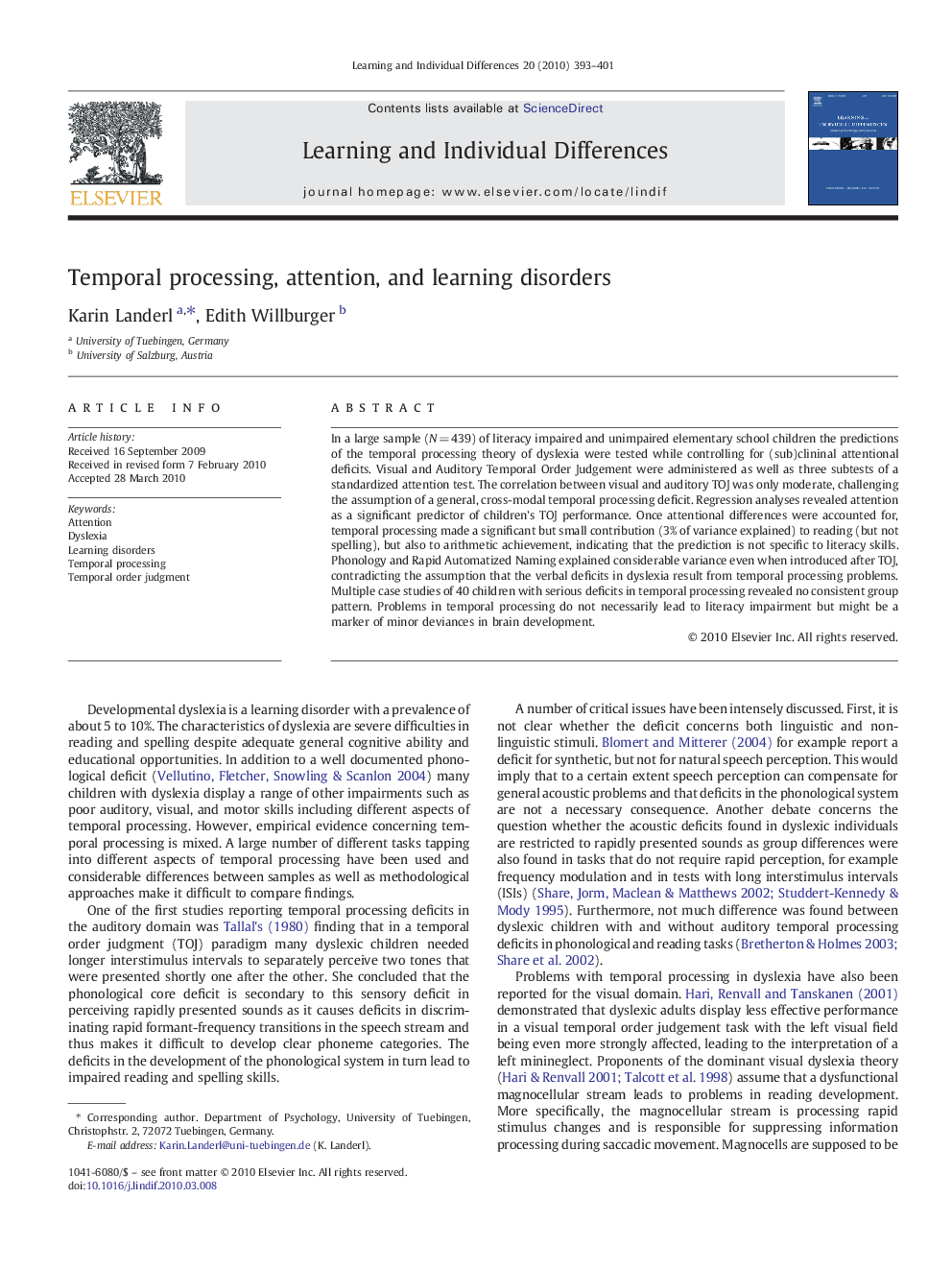| Article ID | Journal | Published Year | Pages | File Type |
|---|---|---|---|---|
| 365043 | Learning and Individual Differences | 2010 | 9 Pages |
In a large sample (N = 439) of literacy impaired and unimpaired elementary school children the predictions of the temporal processing theory of dyslexia were tested while controlling for (sub)clininal attentional deficits. Visual and Auditory Temporal Order Judgement were administered as well as three subtests of a standardized attention test. The correlation between visual and auditory TOJ was only moderate, challenging the assumption of a general, cross-modal temporal processing deficit. Regression analyses revealed attention as a significant predictor of children's TOJ performance. Once attentional differences were accounted for, temporal processing made a significant but small contribution (3% of variance explained) to reading (but not spelling), but also to arithmetic achievement, indicating that the prediction is not specific to literacy skills. Phonology and Rapid Automatized Naming explained considerable variance even when introduced after TOJ, contradicting the assumption that the verbal deficits in dyslexia result from temporal processing problems. Multiple case studies of 40 children with serious deficits in temporal processing revealed no consistent group pattern. Problems in temporal processing do not necessarily lead to literacy impairment but might be a marker of minor deviances in brain development.
